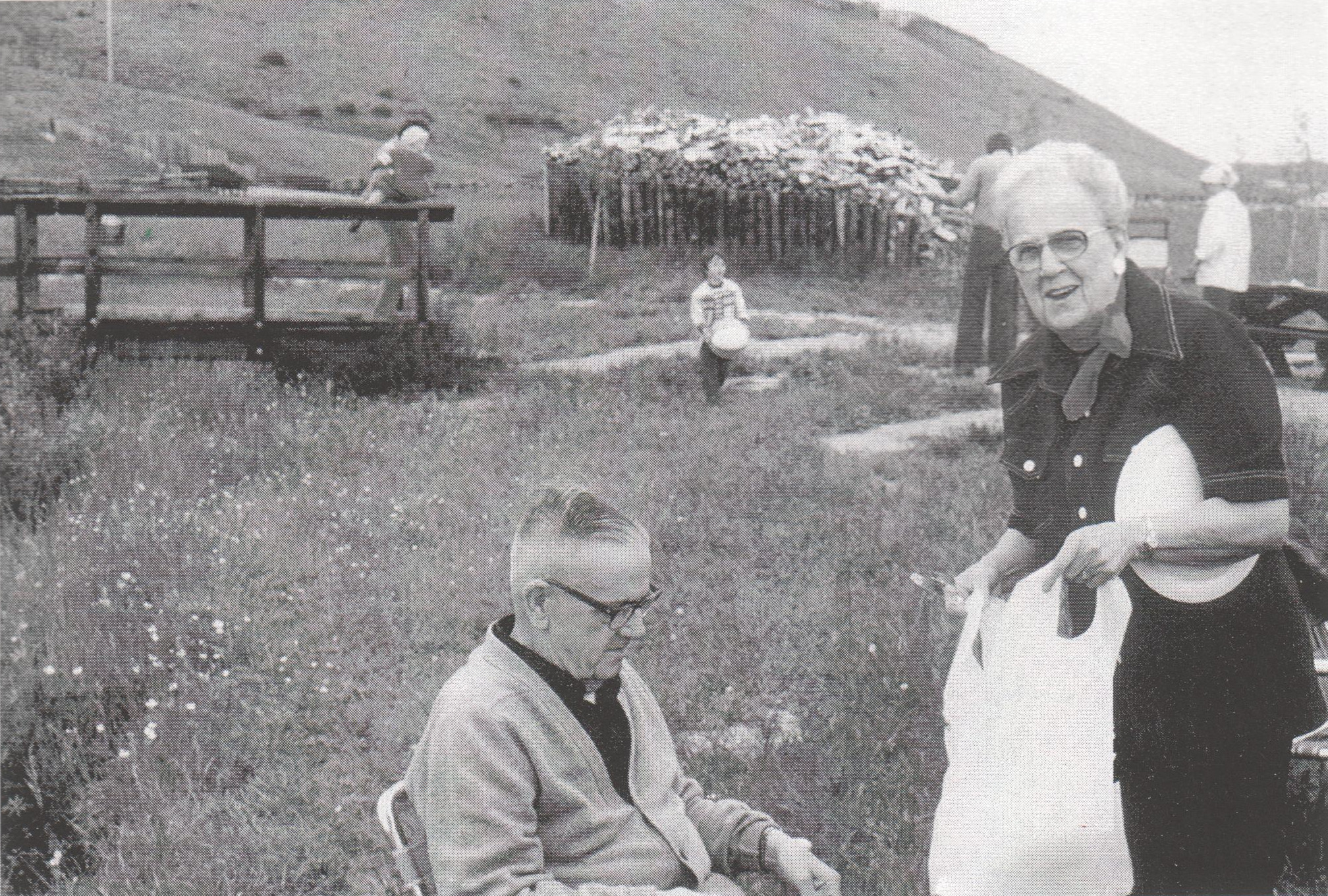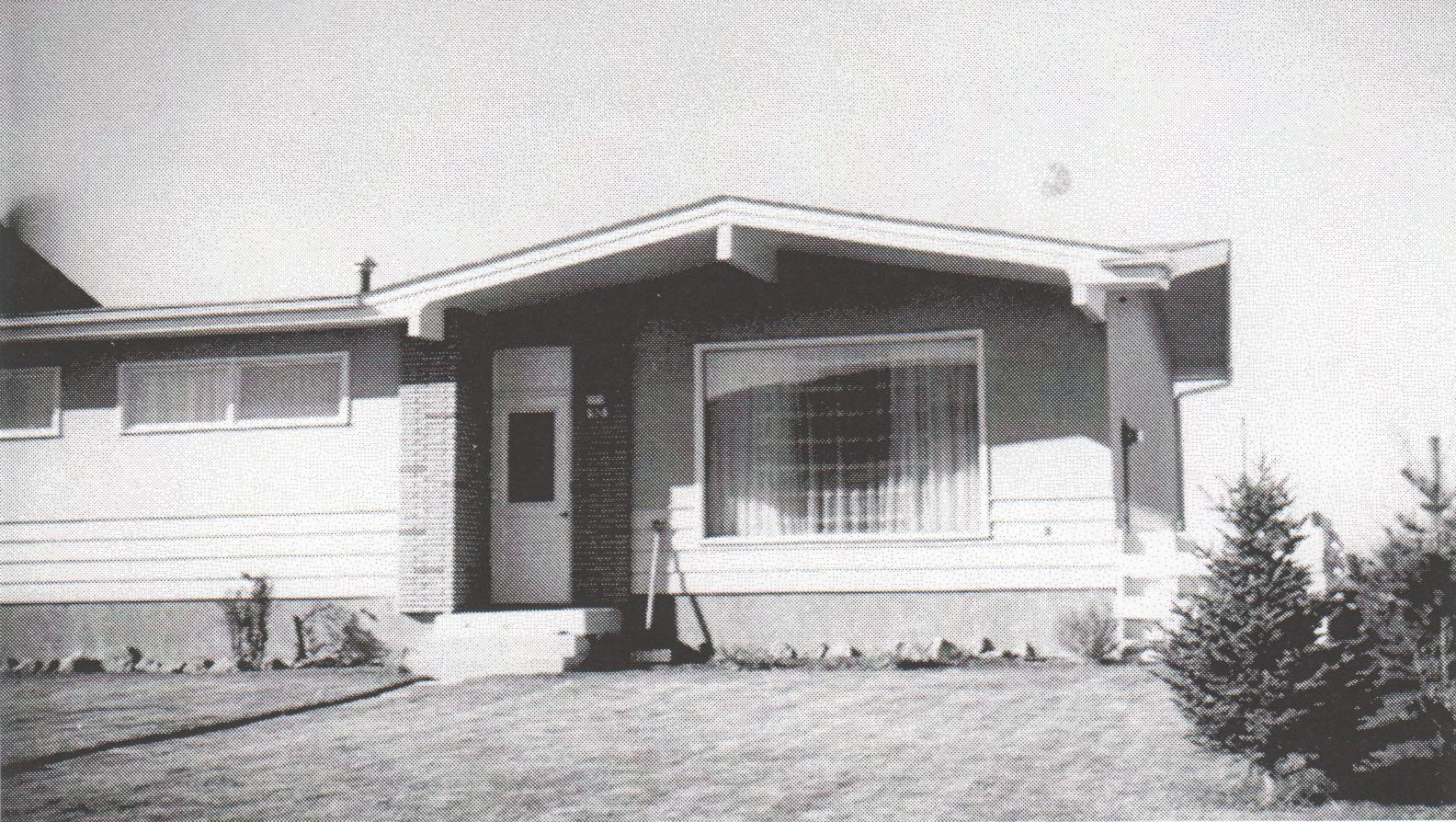Canon & Mrs. Hill
Mrs. Hill interviewed January 2004 by Lydia Graham & Marina Endicott
We came to Cochrane in 1972. The Bishop said Cochrane would be a good place to retire—looking at the mountains.
Not too long before, the parish had purchased the rectory in Cochrane Heights. We could only see the mountains for a year, until they enlarged the Crescent.
It was a lovely home, I felt. We had it from 1972 to 1976 and were very happy to live there.
Canon Howes had had it before us. He was instrumental in starting the Christmas Walk-A-Mile, and invited all the churches. It was written up the Anglican Journal because it was such a good idea. David Asher followed us, but he didn't stay that long. Coming to an established parish was hard for him. Bishop Ford came next. He thought it was a lovely place.
There was no plumbing in the church then, only a tiny sacristy to wash the vessels. Visiting clergy had to go across the road to Mrs. Thompson's until we'd built Ford Hall. Then we had bathrooms! And room for the Sunday School—until then we'd used the Rebekah Hall.
We got the ACW going again; they had lapsed. We held many events for fundraising: a soup kitchen, and an old-fashioned tea where we dressed up and sang Alice Blue Gown. We held fundraisers at the church, and at Bearspaw.
When a parish was in trouble the diocese would send in my husband. "Canon Hill, he's good at getting parishes out of debt."
At first, attendance was fair, but the congregation had no means of giving. Canon Hill started the envelope system.

Those were hard times. People brought you a piece of beef, a cake, a little bit of butter.
The vestry men said, "You can’t ask people to give like that. Ranching people don't know what they'll have till October."
But Canon Hill said, "You can't budget for a parish if you don't know what's coming in."
Tom Ashton was secretary-treasurer, and we'd never had a better one. He was always there, Johnny On The Spot.
Those red hymn books! Heavy, clumsy—the older people couldn't hold them! But we ordered them anyway. They arrived, but then disappeared. We went months with no hymn books.
Then one Sunday, looking for Christmas decorations, my husband got up on a chair and reached into the loft in the tiny little vestry at the back of the church, and there were the hymn books. Nobody ever knew how they got there.
My husband was a dedicated man.
He wanted to be a priest from the age of eleven, in England. He came to Canada to go to university here. There were missionaries enticing men to come to Canada. He went to St. Chad's College in Regina.
I was a nurse in Weyburn, Saskatchewan, and so proud to wear my cap. It's a shame to lose that pride.
But he was a very persistent person; he proposed to me many many times, on the street, on the ward.
Finally I couldn't lick him—I had to join him.
He had the idea, "Don't talk so much. Let other people talk, you might learn something."
My husband was a great entertainer.
Visiting was very important. After the mid—week services he'd nudge me and say, "Invite them over for coffee! Ask how many kids they’ve got!"
He would go to visit the new families and come back and tell me how delightful they were. I'd ask how many boys, how many girls? But he'd have no idea!
He was greatly interested in the Scouts and Cubs, and took over as Chaplain to the cadets, both Air and Army. He was wonderful with the youth there. He'd say, "Get the kids to church and the parents will follow."
Young people liked him because he was truthful. He could influence people. Because of my husband, seven or eight young men left their jobs to become priests-RCMP officers, radio announcers. He was also a huge sports fan; he'd cut the sermon short if the football game was on.
November 11 was a special time for Canon Hill. The big parade, meeting at the rink with the Air Cadets, Cubs, Scouts, Girl Guides and Brownies, and all marching down the hill to the cenotaph.
He was a champion organizer. Things had to be kept up: "If you're going to do it, do it properly," he'd say. And, "That's what they pay me for!"
